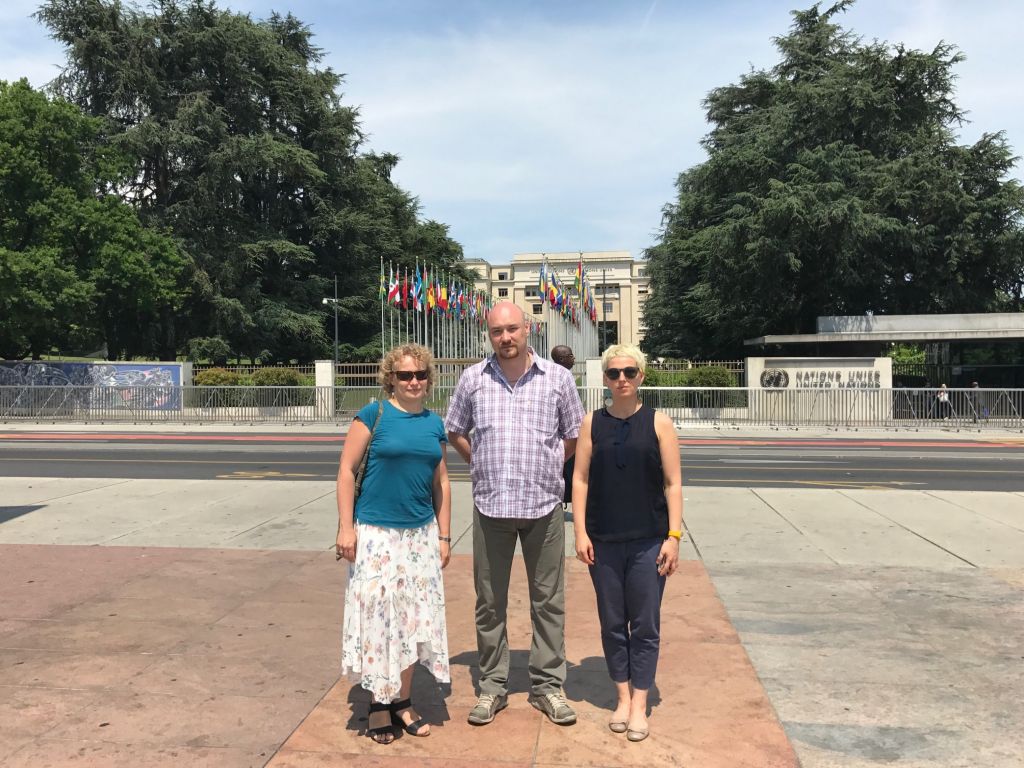The visit was organized by the Human Rights House Network in cooperation with the International Federation for Human Rights (FIDH).
On June 6 the 35th session of the UN Human Rights Council will start; and on June 14,a report by the Special Rapporteur on Belarus, Miklos Haraszti will be presented, which once again was criticized by the Ministry of Foreign Affairs of Belarus.After that, the Council will vote on the extension of the mandate of the UN Special Rapporteur on Belarus.“During the meetings we described our position that the country needs a renewal of the mandate of the Special Rapporteur. The situation in Belarus, unfortunately, has not improved, but even worsened significantly during March, April and May of this year. And the authorities have returned to more severe forms of repression against citizens”, Valiantsin Stefanovich said.
According to the human rights defender, the mandate is also important because Belarus is beyond the regional human rights protection system, since our country is not member of the Council of Europe. Accordingly, the only international mechanism that we can use is the United Nations.
“We stressed that Belarus’s cooperation with the UN is extremely random: it does not consider Views by the UN Human Rights Committee as binding decisions, nor does it recognize its procedures; the country does not only invite the Special Rapporteurs, but thematic rapporteurs, as well. From this perspective, we believe that it is necessary to call on Belarus to be engaged in closer cooperation in the framework of its international treaty obligations”, Valiantsin Stefanovich said.
In turn, Anna Gerasimova emphasized: “The mandate of the Special Rapporteur is actually the only instrument of international control over the human rights situation in Belarus.It was not created as a constant, but as a temporary UN mandate, which will be canceled, when Belarus significantly improves its human rights situation. Moreover, the mandate was created to assist the Belarusian authorities to improve this very situation. Unfortunately, the situation has not only improved, but worsened, and the Belarusian authorities persistently refuse to cooperate with the mandate. It is obvious that we need to make every effort possible to ensure that the mandate is extended, and that Belarus should begin to cooperate with it. Everyone will benefit from it.”
Related articles:





